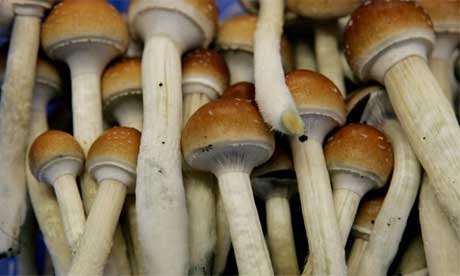Hallucinogens are drugs which amends human awareness and frame of mind. Such alterations may be either amusing or awfully alarming. Hallucinogens drugs influence the regions, parts and nerves of the brain, the neurotransmitters which are liable for coordination, thought processes, hearing and sight. These drugs are mainly acquired from special plant species and substances or can be synthetic. Common natural and synthetic hallucinogens are: - peyote - psilocybin - psilocin - dimethyltryptamine (DMT) - lysergic acid diethylamide (LSD) - dimethoxyamphetamine (DOM) - phencyclidine(PCP) - Ecstasy (MDMA). Hallucinogens provoke physiological, sensory and intuitive results. They are also known for causing flashbacks, even when the person no longer uses the hallucinogens drugs. The mainly significant thing to memorize about hallucinogens drugs are that each person will respond in a special way depending upon body size, dose and hallucinogenic drug brand. These are very unpredictable, risky drugs, and just as the drugs they are unpredictable, so are the outcomes, which crop up more frequently for the period of tension and seem to occur more frequently in younger generations according to the researches. Hallucinogens are drugs which amends human awareness and frame of mind. Such alterations may be either amusing or awfully alarming. Hallucinogens drugs influence the regions, parts and nerves of the brain, the neurotransmitters which are liable for coordination, thought processes, hearing and sight. These drugs are mainly acquired from special plant species and substances or can be synthetic. Common natural and synthetic hallucinogens are: - peyote - psilocybin - psilocin - dimethyltryptamine (DMT) - lysergic acid diethylamide (LSD) - dimethoxyamphetamine (DOM) - phencyclidine(PCP) - Ecstasy (MDMA). Hallucinogens provoke physiological, sensory and intuitive results. They are also known for causing flashbacks, even when the person no longer uses the hallucinogens drugs. The mainly significant thing to memorize about hallucinogens drugs are that each person will respond in a special way depending upon body size, dose and hallucinogenic drug brand. These are very unpredictable, risky drugs, and just as the drugs they are unpredictable, so are the outcomes, which crop up more frequently for the period of tension and seem to occur more frequently in younger generations according to the researches. Several hallucinogens drugs are not measured physically addictive, because it does not generate neurotic drug-seeking activities. But constant users have become sensitively dependent on hallucinogen drugs. Such drugs have become the central focus of people’s thoughts, emotions, activities and entire lives. Furthermore hazardous than the psychological addiction on hallucinogen drugs is the amplified patience users have for the drugs. Regular use of LSD, mescaline, Ketamine and psilocybin have been known to encourage tolerance in a few days, demanding requirement for amplified doses to fabricate the state of intoxication the individual had previously achieved. The jeopardy in this position is not so much of an overdose, but the self-mutilating or rash decisions that direct to life losing accidents. So, take care of dosage and also consult your physicians also. The synthetics found in hallucinogen drugs make adductors have a sense of distorted reality. Peyote cactus and psilocybin mushrooms produce visions that are not normally seen by individuals who are not users of hallucinogens. The effects of LSD may differ depending on the quantity taken, the environment, and the person’s tolerance of the hallucinogens drug and the capacity of the drug user.
Wednesday, August 26, 2009
Hallucinogens Drugs
Several hallucinogens drugs are not measured physically addictive, because it does not generate neurotic drug-seeking activities. But constant users have become sensitively dependent on hallucinogen drugs. Such drugs have become the central focus of people’s thoughts, emotions, activities and entire lives. Furthermore hazardous than the psychological addiction on hallucinogen drugs is the amplified patience users have for the drugs. Regular use of LSD, mescaline, Ketamine and psilocybin have been known to encourage tolerance in a few days, demanding requirement for amplified doses to fabricate the state of intoxication the individual had previously achieved. The jeopardy in this position is not so much of an overdose, but the self-mutilating or rash decisions that direct to life losing accidents. So, take care of dosage and also consult your physicians also.
The synthetics found in hallucinogen drugs make adductors have a sense of distorted reality. Peyote cactus and psilocybin mushrooms produce visions that are not normally seen by individuals who are not users of hallucinogens. The effects of LSD may differ depending on the quantity taken, the environment, and the person’s tolerance of the hallucinogens drug and the capacity of the drug user.
Posted by Adsense at 12:26 AM
Subscribe to:
Post Comments (Atom)

0 comments:
Post a Comment